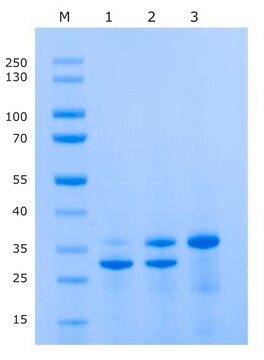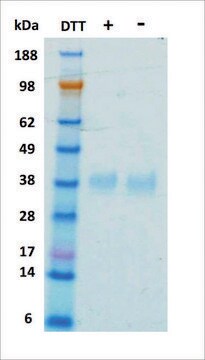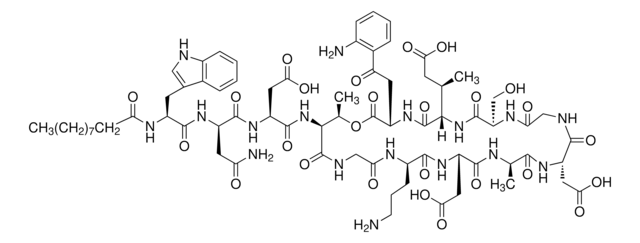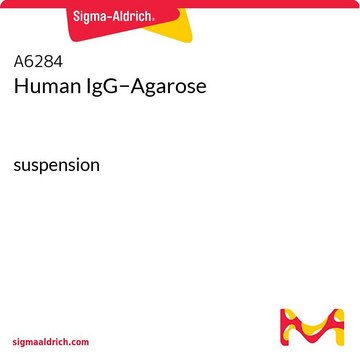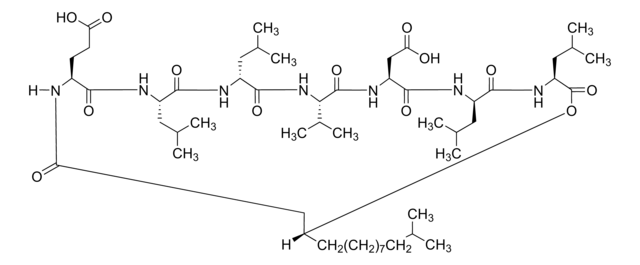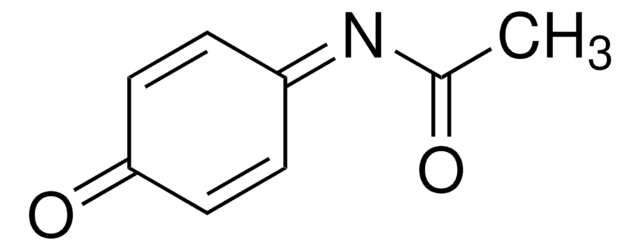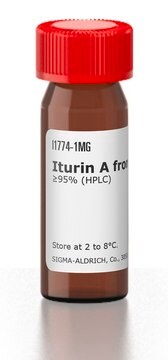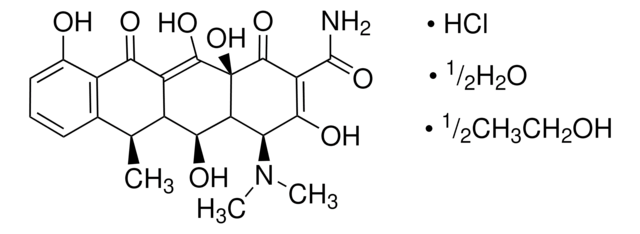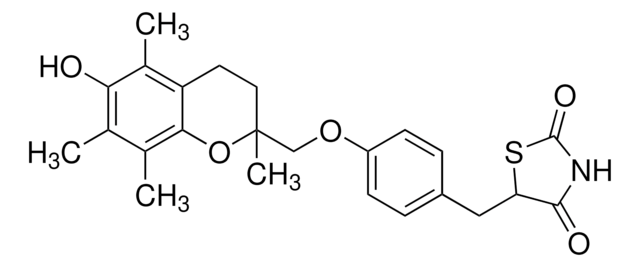S5269
Serum amyloid P component human
buffered aqueous solution
Synonym(s):
Amyloid P component from serum
Sign Into View Organizational & Contract Pricing
All Photos(1)
About This Item
Recommended Products
form
buffered aqueous solution
Quality Level
UniProt accession no.
shipped in
wet ice
storage temp.
2-8°C
Gene Information
human ... APCS(325)
Looking for similar products? Visit Product Comparison Guide
Application
Human serum amyloid P component has been used as a standard in a study to characterize it as a plasma marker for Parkinson′s disease by a proteomic approach.
Biochem/physiol Actions
Serum amyloid P component (SAP) is named for its universal presence in amyloid deposits (senile plaque and neurofibrillary tangles) in Alzheimer patients although it is exclusively synthesized in the periphery. SAP levels in CSF can be useful for assessing cognitive impairment in AD patients. However, SAP appeared not to be required for A beta deposition since no endogenous SAP immunoreactivity was detectable in transgenic mouse overexpressing beta-protein precursor. SAP belongs to the pentraxins family of oligomeric serum proteins which is highly conserved through evolution. Its presence has been found in Limulus polyphemus haemolymph. A recent report demonstrated that, in the presence of calcium, SAP can bind to free DNA and chromatin released through apoptosis or necrosis, displacing histone H1 and causing its solubilization and degradation. SAP knock out mice developed antinuclear autoimmunity and glomerulonephritis. However, the protective role of SAP in human SLE is still controversial. In addition, SAP neutralizes LPS and is potentially useful in defense against serious gram-negative sepsis in humans.
Physical form
Solution in 0.01 M Tris, 0.14 M NaCl at pH 8.0 containing 0.01 M EDTA and 0.1% (w/v) NaN3
Disclaimer
RESEARCH USE ONLY. This product is regulated in France when intended to be used for scientific purposes, including for import and export activities (Article L 1211-1 paragraph 2 of the Public Health Code). The purchaser (i.e. enduser) is required to obtain an import authorization from the France Ministry of Research referred in the Article L1245-5-1 II. of Public Health Code. By ordering this product, you are confirming that you have obtained the proper import authorization.
Storage Class Code
10 - Combustible liquids
WGK
WGK 1
Flash Point(F)
Not applicable
Flash Point(C)
Not applicable
Choose from one of the most recent versions:
Already Own This Product?
Find documentation for the products that you have recently purchased in the Document Library.
Amyloid P component as a plasma marker for Parkinson's disease identified by a proteomic approach
Han-Min Chen
Clinical Biochemistry (2011)
C J de Haas et al.
Infection and immunity, 67(6), 2790-2796 (1999-05-25)
Lipopolysaccharide (LPS) is the major mediator of gram-negative septic shock. Molecules that bind LPS and neutralize its toxic effects could have important clinical applications. We showed that serum amyloid P component (SAP) neutralizes LPS. A SAP-derived peptide, consisting of amino
M Kimura et al.
Neuroscience letters, 273(2), 137-139 (1999-10-03)
Serum amyloid P component (SAP) is a normal plasma constituent that is observed both in senile plaque and in neurofibrillary tangle in brains of patients with Alzheimer's disease (AD). In this study, we evaluated the SAP levels in cerebrospinal fluid
New insights into the role of serum amyloid P component, a novel lipopolysaccharide-binding protein.
C J de Haas
FEMS immunology and medical microbiology, 26(3-4), 197-202 (1999-11-27)
Serum amyloid P component (SAP) is a highly preserved plasma protein named for its ubiquitous presence in amyloid deposits. Although SAP is described to bind many ligands, no clear biological function has been ascribed to it as yet. This review
M C Bickerstaff et al.
Nature medicine, 5(6), 694-697 (1999-06-17)
Serum amyloid P component (SAP), a highly conserved plasma protein named for its universal presence in amyloid deposits, is the single normal circulating protein that shows specific calcium-dependent binding to DNA and chromatin in physiological conditions. The avid binding of
Our team of scientists has experience in all areas of research including Life Science, Material Science, Chemical Synthesis, Chromatography, Analytical and many others.
Contact Technical Service
